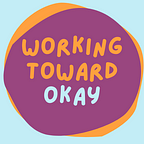Blood or Water
It’s the English proverb we’ve all heard: Blood is thicker than water.
Our society takes this as a given, for the most part. Family ties are stronger than any bonds we can form with anyone else. We are beholden to those people whose blood runs in our veins, more so than we are to even our closest friends. This sounds great, at first glance. A built-in safety net, a place to turn when the rest of the world lets us down. People who will cast aside their differences and take care of us when we need it most.
But I think even the healthiest families know, deep down, that it doesn’t always work out that way. For some, it’s a sibling that pretends to be loving and kind but will talk behind your back any chance they get. Maybe it’s a relative that takes and takes from everyone around them but never repays anyone for their troubles. It could be a critical, overbearing parent, or one that never calls you back unless they need something.
For others, it’s even worse. It’s a parent who abandons you, or abuses you. It’s a relative who turns a blind eye to your struggles. Often, it’s a family member whose values and choices are toxic to your wellbeing.
As an adoptee, I know full well how complicated family can be. From the moment I passed from the arms of my birth family to the arms of my foster family to the arms of my adoptive family, my existence seemed to disprove the old proverb. The family I have been embedded in since my earliest memories are not my blood — they’re water. And yet I have felt the same expectation to love unconditionally.
It took me a while to understand the root of my love for my adoptive parents. Now I know: it’s the fact that they knew they weren’t entitled to it. They earned it. Not just by taking care of my basic needs, but by actively showing up for me. I have thrown so many curveballs at them over the years, and not once have they turned away. Even though I just can’t seem to shake my fear of abandonment, deep down I know my parents’ love is unconditional because they have proven it through their actions.
But what happens when your family has not shown up for you or has hurt you? “Family” should not be a protected class that is free to wield a negative influence over you and then declare entitlement to your emotional energy. Our collective commitment to this idea of family can hurt far more than it helps. It can leave adopted children feeling eternally broken, dwelling on the thought that their blood family may not have wanted them at all. It can keep children trapped in relationships with abusive parents, convinced that it can’t be possible for a blood parent to really harm their child. Something about sharing blood is sacred, right?
Well, one look at our reality should tell us that nothing is sacred. The blood ties we share with others are not a guarantee. If they were, there would be no abuse, no neglect, no abandonment. But humans are flawed, and trauma sends shockwaves through generations. Being a parent, a sibling, or a grandparent does not absolve someone from all wrongdoing. It doesn’t protect that person from hurting the people around them.
You don’t have to give unconditional love to someone who will not reciprocate. If someone hurts you, if someone abandons you, if someone violates your trust, they cannot hide behind the guise of “family” any longer. The choice is yours to make, whether you distance yourself from them, call them out, or decide to help them through their issues. When you decide that you no longer care about the viscosity of this liquid versus that one, all that’s left is real love to give.
Originally published at workingtowardokay.com in October 2020.
